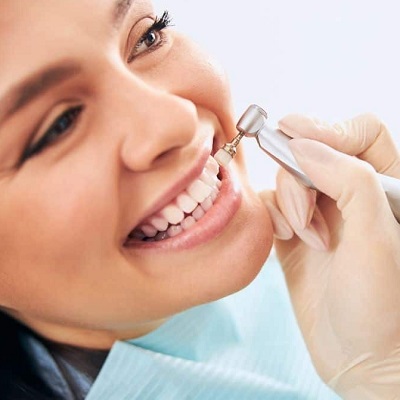Maintaining a healthy smile is more than just brushing and flossing your teeth every day. One crucial aspect of oral hygiene that people sometimes overlook is regular Teeth Cleaning by a dental professional. But how often should you schedule these cleanings? Let’s explore how frequently you need to get your teeth cleaned and why it’s essential for your oral and overall health.
Why Regular Teeth Cleanings Are Important:
Professional teeth cleanings are vital because they reach areas that everyday brushing and flossing can’t. Even if you're diligent about oral hygiene, plaque and tartar can still build up over time. Plaque is a sticky film of bacteria that, if not removed, hardens into tartar. Tartar can only be removed by dental professionals using specialized tools during a teeth cleaning.
Left unchecked, plaque and tartar can lead to gum disease (gingivitis), tooth decay, and even more severe conditions like periodontitis, which may result in tooth loss. Regular cleanings also allow your dentist or hygienist to monitor your oral health and catch any problems early, potentially saving you from more extensive (and expensive) dental treatments down the road.
How Often Do Experts Recommend Teeth Cleaning?
Most dental professionals recommend that you get your teeth cleaned every six months. This semi-annual schedule helps to remove plaque buildup and detect any early signs of dental problems like cavities or gum disease.
However, the frequency of cleanings can vary depending on individual health needs. Some people may need to visit the dentist more frequently, while others can get by with fewer cleanings.
Factors That May Require More Frequent Teeth Cleanings:
While the general guideline is to visit your dentist twice a year, some people might benefit from more frequent cleanings. Here are some factors that could necessitate additional visits:
1. Gum Disease:
If you have gum disease or are at a high risk of developing it, your dentist may suggest more frequent cleanings, possibly every 3 to 4 months. Periodontal disease can cause damage to your gums and the bones that support your teeth, making early intervention critical.
2. Smoking:
Smoking can stain teeth, increase plaque and tartar buildup, and lead to gum disease. If you smoke, your dentist may recommend more frequent cleanings to counteract these effects and reduce your risk of oral health problems.
3. Diabetes:
People with diabetes are more susceptible to infections, including gum infections. If you have diabetes, regular cleanings are essential in managing your overall oral health, as untreated gum disease can also affect your ability to control blood sugar levels.
4. Orthodontics:
If you wear braces or other orthodontic devices, food particles can easily get trapped, making it harder to maintain proper oral hygiene. More frequent cleanings can ensure your teeth and gums stay healthy throughout your orthodontic treatment.
5. Pregnancy:
Pregnancy can increase the risk of gum disease due to hormonal changes. More regular visits to your dentist for teeth cleaning can help minimize potential oral health issues during this period.
Can You Get Your Teeth Cleaned Too Often?
While it’s crucial to get regular teeth cleanings, it’s also possible to overdo it. Overly frequent professional cleanings, especially when not medically necessary, can potentially wear down your enamel over time. That’s why it's important to follow the advice of your dentist regarding the best schedule for your teeth cleanings.
The Teeth Cleaning Process: What to Expect:
During a typical teeth cleaning, your dental hygienist will:
1. Examine Your Mouth:
Before starting the cleaning process, the hygienist will check your gums and teeth to identify any signs of oral health issues.
2. Remove Plaque and Tartar:
Specialized tools are used to scrape away plaque and tartar from the surface of your teeth, especially around the gumline and in hard-to-reach areas.
3. Deep Cleaning with Professional Brush:
After removing tartar, the hygienist will use a high-powered electric brush with a gritty toothpaste to deep-clean your teeth. This helps to remove any remaining plaque and stains.
4. Flossing:
Your hygienist will floss your teeth to remove any debris from between them, ensuring a thorough cleaning.
5. Rinse and Fluoride Treatment:
Finally, your teeth will be rinsed, and a fluoride treatment may be applied to protect them from cavities.
The Role of Home Care Between Cleanings:
While professional cleanings are critical, daily home care is just as important to maintain good oral health. Here’s how you can take care of your teeth between dental cleanings:
1. Brush Twice Daily:
Use fluoride toothpaste and brush your teeth for at least two minutes, covering all surfaces. Consider using an electric toothbrush for more effective cleaning.
2. Floss Every Day:
Flossing removes food particles and plaque between teeth that brushing can miss. It’s an essential step for preventing cavities and gum disease.
3. Mouthwash:
Using an antiseptic mouthwash can help reduce plaque, prevent gum disease, and maintain fresh breath.
4. Healthy Diet:
Avoid excessive sugary foods and drinks, which can promote plaque buildup. A diet rich in fruits, vegetables, and dairy can help protect your teeth and gums.
When to Schedule Your Next Teeth Cleaning:
It’s always a good idea to talk to your dentist about your individual cleaning needs. If it’s been more than six months since your last cleaning, or if you’re experiencing any dental problems like sensitivity, bleeding gums, or bad breath, it’s time to schedule an appointment.





Comments